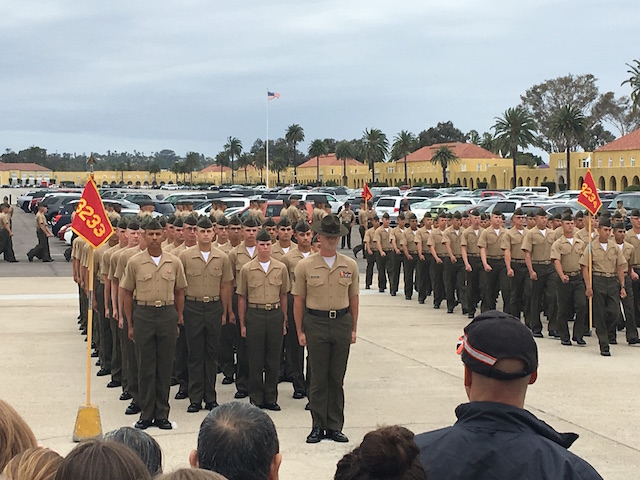Given all the High School and College graduations in the next few weeks I thought it would help to list the Top 10 Books for Graduates. Basically, these are the books I think would be most helpful to young people starting out on life. It’s been really tough to narrow this down but I’ve tried to cover theology, money, marriage, vocation, technology, and apologetics. At the end of the post you’ll find an additional list of “honorable mentions” and also reader suggestions. Add any others in the comments.
Before we get to that, here are some links to more “Top 10 Books” lists:
For your non-Kindle book buying needs please consider using Reformation Heritage Books in the USA and Reformed Book Services in Canada. Good value prices and shipping.
1. Taking God At His Word: Why the Bible Is Knowable, Necessary, and Enough, and What That Means for You and Me by Kevin DeYoung.


As the Bible is the foundation of everything, Kevin DeYoung has written a readable beginner’s guide to important questions such as “What is the Bible?” “How do I interpret it?” etc.
2. The Reason for God by Tim Keller.


Many young Christians lose faith at College because they have not been prepared to defend the faith. Keller’s book will equip students with the basics of what they need to know about the Christian worldview and how to respond to it’s opponents and competitors.
While Keller’s book deals with the bigger picture, the broad principles of apologetics, Josh Macdowell’s classic, More Than a Carpenter, will help students to answer more specific common questions about Christianity.
3. Thriving at College: Make Great Friends, Keep Your Faith, and Get Ready for the Real World! by Alex Chediak.


Alex Chediak guides prospective college students away from their ten most common mistakes. There’s also a companion volume for parents, Preparing Your Teens for College: Faith, Friends, Finances, and Much More
A similar book but narrower in its scope and more popular in style is How to Stay Christian in College.
And you might also want to consider Alex’s most recent book Beating the College Debt Trap: Getting a Degree Without Going Broke.
4. The Meaning of Marriage: Facing the Complexities of Commitment with the Wisdom of God by Tim Keller.


Simple yet profound look at marriage which I wish I’d read 22 years ago. Has the potential to revolutionize your view and experience of marriage.
I’d also highly recommend What He Must Be: …If He Wants to Marry My Daughter by Voddie Baucham. Keller’s book deals more with principles whereas Baucham’s book is more practical. Both are vital. Although entitled What HE must be, it’s a good one for female readers too, so that they know what kind of guy to look out for.
5. Every Good Endeavor: Connecting Your Work to God’s Work by Tim Keller.


An excellent foundation to a lifetime of work that makes me wish I was a teenager again. Another perfect companion volume would by God at Work (Redesign): Your Christian Vocation in All of Life by Gene Veith.
6. Do More Better: A Practical Guide to Productivity by Tim Challies. Perhaps the most practically helpful book on the list.


What’s Best Next: How the Gospel Transforms the Way You Get Things Done by Matt Perman. A bigger book than Do More Better, looking at productivity, time management, workflow, and vocation from the Christian perspective of good works for the glory of God. I can’t for the life of me understand why schools don’t teach this rather than physics, chemistry, etc.
Crazy Busy: A (Mercifully) Short Book about a (Really) Big Problem by Kevin DeYoung could also save graduates a lot of grief.
Some other excellent productivity/organization/time management books, though not from a Christian perspective are: Organizing from the Inside Out: The Foolproof System For Organizing Your Home, Your Office and Your Life by Julie Morgenstern. For much more on time management, try Morgenstern’s Time Management from the Inside Out.
7. The Total Money Makeover: A Proven Plan for Financial Fitness by Dave Ramsey.


How I wish I’d met Dave Ramsey 30 years ago. So, so important for younger people to learn money management from the earliest age. If the graduate was in any way interested in business, I’d also recommend Ramsey’s Entreleadership: 20 Years of Practical Business Wisdom from the Trenches.
8. The Next Story: Life and Faith after the Digital Explosion by Tim Challies.

What teen doesn’t struggle with the role of technology in their life. Tim Challies’ book will give you guidance that will set you up for life. You’ll come back to it again and again.
9. 18 Words: The most important words you will ever know by J. I. Packer.


I’d want any package of ten books for a graduate to have a general theology book somewhere. Packer’s is the one I think best suited to students. If the student was more able, I’d recommend Everyone’s a Theologian by R.C. Sproul. For a popular introduction to biblical theology I can think of none better than Dan Phillips’s The World-Tilting Gospel.
Or have a look at Visual Theology: Seeing and Understanding the Truth About God for an attractive and unique presentation of theology ideally suited to our visual age.
10. Why We Love the Church: In Praise of Institutions and Organized Religion by Kevin DeYoung and Ted Kluck.


As I know young Christians are very tempted to church-hop, I’d want them to read this powerful argument for commitment to a local church. A fine alternative would be Thabiti’s What Is a Healthy Church Member?
I’m going to cheat here, break my Top 10 rule, and add three more books that I think every graduate should have.
11. Don’t Waste Your Life by John Piper.


A stirring call to Christian action and commitment, to serve God with all our heart in the few short years we have here below.
And there’s also In Christ Alone: Living the Gospel Centered Life by Sinclair Ferguson.
12. Discovering God’s Will by Sinclair Ferguson.


If Piper’s book will convince you to serve God with your whole life, the next question is, “What does God want me to do with my life?” Sinclair Ferguson will help you find the answer to that vital question.
See also Just Do Something: A Liberating Approach to Finding God’s Will by Kevin DeYoung.
13. Lit!: A Christian Guide to Reading Books by Tony Reinke.


This will not only motivate reading, but also make it far more enjoyable, worthwhile, and productive.
Honorable Mentions
If I had a Top 20, these are the additional books that would make the list.
The Discipline of Spiritual Discernment by Tim Challies.
What’s Your Worldview?: An Interactive Approach to Life’s Big Questions by James Anderson.
Always Ready: Directions for Defending the Faith by Greg Bahnsen.
The Questions Christians Hope No One Will Ask: (With Answers) by Mark Mittelberg.
How to Become a Straight-A Student: The Unconventional Strategies Real College Students Use to Score High While Studying Less by Cal Newport.
Written in Stone: The Ten Commandments and Today’s Moral Crisis by Phil Ryken.
Reader Suggestions
These are some of the suggestions from social media surveys and polls. I haven’t read all of these.
Creation Regained: Biblical Basics for a Reformational Worldview by Al Woulters.
Developing A Healthy Prayer Life by Joel and James Beeke.
The Holiness of God by R.C. Sproul.
Total Truth: Liberating Christianity from Its Cultural Captivity by Nancy Pearcey and Phillip Johnson.
Life on the Edge: The Next Generation’s Guide to a Meaningful Future by Dr. James Dobson.
Mere Christianity by C. S. Lewis.
Welcome to College: A Christ-Follower’s Guide for the Journey by Jonathan Morrow.
The Bookends of the Christian Life by Jerry Bridges.





































